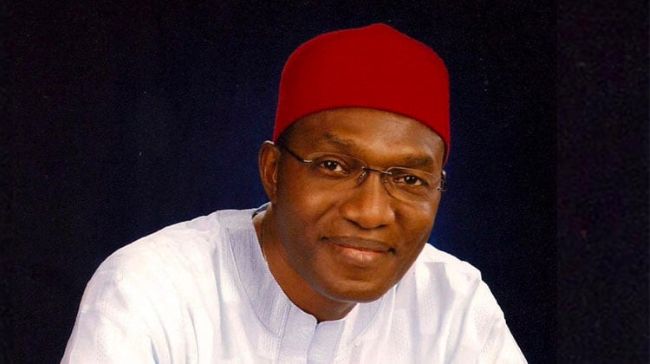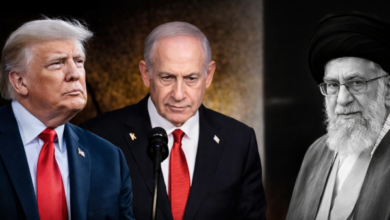Court Strikes Out N400m Fraud Charge as Andy Uba, Police Reach Full Settlement

In a major legal twist that underscores the growing use of amicable settlements in Nigeria’s criminal justice system, the Inspector-General of Police (IGP) on Thursday formally withdrew the N400 million fraud charge earlier filed against Senator Andy Uba and his co-defendant, Benjamin Etu, following the complete refund of the disputed funds to the complainant, Dr. George Uboh.
The development effectively ends months of legal tussle over allegations of obtaining money by false pretence, in what had been billed as one of the more politically sensitive cases involving a former lawmaker and businessman.
Case Withdrawn After Full Refund
At the resumed hearing before Justice Mohammed Umar of the Federal High Court, Abuja, Police Counsel, Aminu Abdullahi, informed the court that both defendants had fully refunded the N400 million at the centre of the case.
He disclosed that a Notice of Discontinuance had been duly filed in accordance with Section 108(5) of the Administration of Criminal Justice Act (ACJA), 2015, following the settlement between the parties.
“The suspects and the nominal complainant have amicably resolved and settled all disputes, claims, and liabilities arising from or connected with the transaction,” Abdullahi stated.
According to him, the payment of the disputed sum had been made to the complainant, and both sides executed a formal settlement agreement to that effect.
Defence counsel C. F. Odiniru did not oppose the application, confirming that an Affidavit of Facts had been filed detailing the conditions of settlement and the defendants’ fulfilment of all obligations.
Court Strikes Out Charges, Discharges Defendants
In his ruling, Justice Umar granted the application for discontinuance and formally struck out the two-count charge, effectively discharging Senator Andy Uba and Mr. Etu from further prosecution.
“The issues in dispute have been overtaken by events. Since parties have amicably settled and restitution has been made, the case is hereby struck out,” the judge ruled.
Defence counsel Odiniru had further requested that the court dismiss the charges entirely — rather than merely strike them out — citing Section 108(3) of the ACJA, which allows for full discharge when a settlement has been executed in good faith.
The affidavit tendered by Etu confirmed that the complainant, Dr. Uboh, had received and acknowledged full payment of N400 million, supported by a written agreement marked Exhibit A.
Background: The Fraud Allegations
The case, filed in 2024, alleged that Andy Uba and his associates had conspired to obtain N400 million by false pretence, claiming to have influence in securing the appointment of a Managing Director at the Niger Delta Development Commission (NDDC).
The charge, brought under Sections 1(2), 1(3), and 8 of the Advance Fee Fraud and Other Fraud-Related Offences Act, 2006, accused the defendants of misrepresentation to obtain the funds from Dr. Uboh.
Following Uba’s repeated absences in court, the prosecution had earlier sought a bench warrant for his arrest in September, citing “consistent disregard for judicial summons.” His counsel, however, pleaded ill health and secured a final adjournment before the settlement talks began.
The Attorney-General of the Federation (AGF) had earlier granted approval for the IGP to prosecute the matter, with the police intending to call six witnesses before the sudden resolution.
A Legal Turnaround Through Settlement and Restitution
The withdrawal of charges after restitution highlights the increasing use of restorative justice mechanisms within Nigeria’s criminal jurisprudence — especially in financial and economic crimes where restitution aligns with public interest.
Legal analysts note that the ACJA 2015 introduced flexibility into criminal procedure, allowing for negotiated resolutions in appropriate cases, provided they serve the ends of justice and compensate victims.
“This case demonstrates how financial disputes — once criminally prosecuted — can still end through structured restitution under judicial oversight,” said a senior Abuja-based legal practitioner who spoke to BRANDECONOMY.
The police’s invocation of Section 108(5) shows that criminal litigation can be discontinued once both parties achieve a lawful, verifiable resolution, especially where restitution and reconciliation eliminate the need for further penal sanction.
BRANDECONOMY ANALYSIS: Is This Restorative Justice Meeting Legal Pragmatism?
This case brings to the fore several key insights about Nigeria’s legal and justice system:
1. Evolving Role of Restitution in Economic Crimes
Nigeria’s courts increasingly endorse restitution-based settlements, particularly where victims are made whole. This reflects a broader shift from punitive justice toward economic restoration and dispute de-escalation.
2. Legal Precedent for Amicable Resolution in Fraud Cases
The decision could set a persuasive precedent for similar cases, balancing deterrence with pragmatism. Legal observers suggest that such resolutions save judicial time while reinforcing trust in Nigeria’s justice system as flexible but firm.
3. The Political Undercurrent
As a former senator, Andy Uba’s case attracted national attention, with some interpreting the resolution as a signal of elite accountability within the framework of due process. Yet, critics argue that political figures often secure settlements more easily than ordinary citizens — raising debates about equity before the law.
4. Implications for the Administration of Criminal Justice Act
The case demonstrates the practical utility of Sections 108(3) and 108(5) of the ACJA in promoting negotiated justice, reaffirming the Act’s goal of speedy and fair dispensation of justice without unnecessary procedural rigidity.
The Verdict: Settlement as a Strategic Exit
For the Nigerian justice system, the Uba case reinforces a pragmatic truth — settlement and restitution are not signs of weakness, but rather tools for efficiency and reconciliation when properly regulated by the courts.
With the refund acknowledged and the dispute formally resolved, Senator Uba walks free, but the case stands as a cautionary tale on financial propriety, public perception, and the thin line between influence and impropriety.
As Nigeria’s judiciary continues to modernize, cases like this underline a new legal doctrine taking root: justice that heals, not just punishes. However, critics wonder if this type of settlement is enough to serve as a deterrent to others from stealing from the commonwealth.










